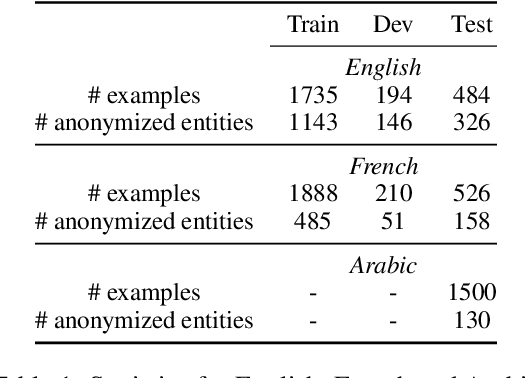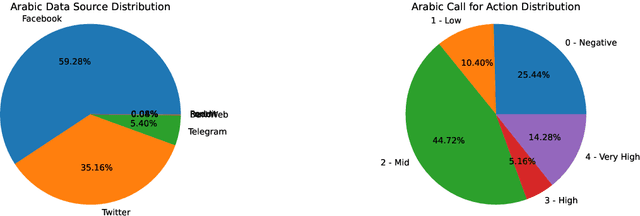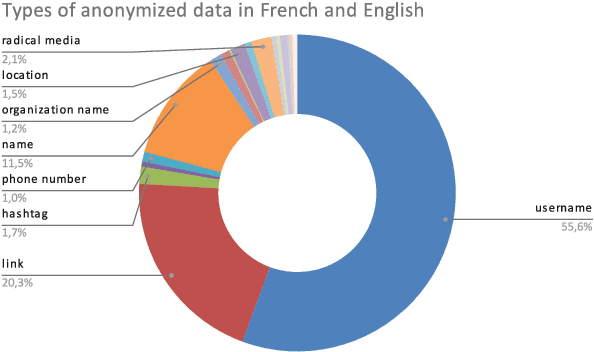Virginie Mouilleron
Multilingual, Multimodal Pipeline for Creating Authentic and Structured Fact-Checked Claim Dataset
Jan 12, 2026Abstract:The rapid proliferation of misinformation across online platforms underscores the urgent need for robust, up-to-date, explainable, and multilingual fact-checking resources. However, existing datasets are limited in scope, often lacking multimodal evidence, structured annotations, and detailed links between claims, evidence, and verdicts. This paper introduces a comprehensive data collection and processing pipeline that constructs multimodal fact-checking datasets in French and German languages by aggregating ClaimReview feeds, scraping full debunking articles, normalizing heterogeneous claim verdicts, and enriching them with structured metadata and aligned visual content. We used state-of-the-art large language models (LLMs) and multimodal LLMs for (i) evidence extraction under predefined evidence categories and (ii) justification generation that links evidence to verdicts. Evaluation with G-Eval and human assessment demonstrates that our pipeline enables fine-grained comparison of fact-checking practices across different organizations or media markets, facilitates the development of more interpretable and evidence-grounded fact-checking models, and lays the groundwork for future research on multilingual, multimodal misinformation verification.
Beyond Dataset Creation: Critical View of Annotation Variation and Bias Probing of a Dataset for Online Radical Content Detection
Dec 16, 2024Abstract:The proliferation of radical content on online platforms poses significant risks, including inciting violence and spreading extremist ideologies. Despite ongoing research, existing datasets and models often fail to address the complexities of multilingual and diverse data. To bridge this gap, we introduce a publicly available multilingual dataset annotated with radicalization levels, calls for action, and named entities in English, French, and Arabic. This dataset is pseudonymized to protect individual privacy while preserving contextual information. Beyond presenting our \href{https://gitlab.inria.fr/ariabi/counter-dataset-public}{freely available dataset}, we analyze the annotation process, highlighting biases and disagreements among annotators and their implications for model performance. Additionally, we use synthetic data to investigate the influence of socio-demographic traits on annotation patterns and model predictions. Our work offers a comprehensive examination of the challenges and opportunities in building robust datasets for radical content detection, emphasizing the importance of fairness and transparency in model development.
Cloaked Classifiers: Pseudonymization Strategies on Sensitive Classification Tasks
Jun 25, 2024



Abstract:Protecting privacy is essential when sharing data, particularly in the case of an online radicalization dataset that may contain personal information. In this paper, we explore the balance between preserving data usefulness and ensuring robust privacy safeguards, since regulations like the European GDPR shape how personal information must be handled. We share our method for manually pseudonymizing a multilingual radicalization dataset, ensuring performance comparable to the original data. Furthermore, we highlight the importance of establishing comprehensive guidelines for processing sensitive NLP data by sharing our complete pseudonymization process, our guidelines, the challenges we encountered as well as the resulting dataset.
Towards a Robust Detection of Language Model Generated Text: Is ChatGPT that Easy to Detect?
Jun 09, 2023


Abstract:Recent advances in natural language processing (NLP) have led to the development of large language models (LLMs) such as ChatGPT. This paper proposes a methodology for developing and evaluating ChatGPT detectors for French text, with a focus on investigating their robustness on out-of-domain data and against common attack schemes. The proposed method involves translating an English dataset into French and training a classifier on the translated data. Results show that the detectors can effectively detect ChatGPT-generated text, with a degree of robustness against basic attack techniques in in-domain settings. However, vulnerabilities are evident in out-of-domain contexts, highlighting the challenge of detecting adversarial text. The study emphasizes caution when applying in-domain testing results to a wider variety of content. We provide our translated datasets and models as open-source resources. https://gitlab.inria.fr/wantoun/robust-chatgpt-detection
 Add to Chrome
Add to Chrome Add to Firefox
Add to Firefox Add to Edge
Add to Edge